STDs (Sexually Transmitted Diseases
Sexually Transmitted Diseases (STDs)
Sexually Transmitted Diseases (STDs) also known as Sexually Transmitted Infections (STIs) are spread by vaginal, oral, or anal sex STDs/STIs can be anyone's problem! Many people have no signs (symptoms). You need to be checked regularly if you are sexually active. Going to a doctor or clinic for testing and treatment can limit problems and keep the disease from spreading.

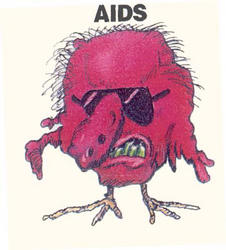
HIV/AIDS is a deadly STD caused by a virus. It makes the body lose the ability to fight off sickness and disease. Many people don't have signs for months or years, but can spread the virus through sex or by sharing infected drug needles.
Initial infection with HIV may have no symptoms, or symptoms may include a short, flu-like illness; as disease progresses, symptoms may include weight loss, fatigue, swollen lymph nodes, fever, lingering opportunistic infections (pneumonia), severe herpes outbreaks, and cancer of the lymph nodes.
Most people with HIV will develop AIDS, which is almost always fatal; drugs can help slow the disease and help patients live longer.
Treatment: No cure; there are preventive treatments for related opportunistic infections.
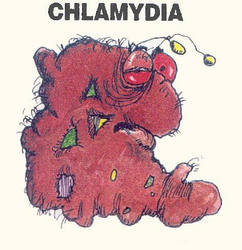
Chlamydia is one of the most common and easily spread STDs. Signs may be a white or watery "drip" (discharge), pelvic pain, anal discomfort, painful intercourse and pain when urinating. Most women and many men do not have any signs of Chlamydia. It can cause serious health problems if not treated early.
If not treated, may lead to Pelvic Inflammatory Disease (PID) in women and infertility in both men and women.
Treatment: Antibiotics
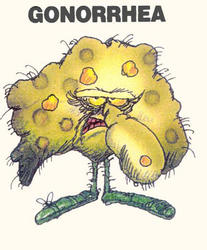
Gonorrhea may cause a "drip" (discharge), burning, itching, soreness of the genitals, painful intercourse and painful urination in men and women. Many women and some men with Gonorrhea have no signs. Gonorrhea can lead to serious health problems if not treated early.
If left untreated, may lead to Pelvic Inflammatory Disease (PID), a condition that can cause infertility in men and women.
Treatment: Antibiotics
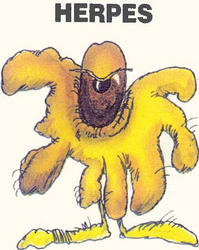
Herpes is caused by a virus. Signs are small, painful blisters, headache, fever, malaise, burning or stinging during urination, tingling, itching, burning or painful sores near the sex organs, anus, or mouth. The blisters go away, but may come back at any time. Herpes can be controlled, but there is no cure.
May recur weeks or years after treatment; attacks may reappear during stress, menstruation, or illness.
Treatment: No known cure; drug treatment make outbreaks less severe.
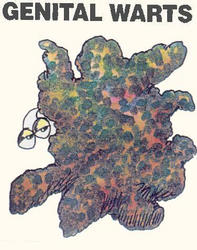
Genital Warts, caused by Human Papilloma Virus, can grow on or around the sex organs or anus. The warts can be removed, but you still carry the virus.
Most people have no symptoms. Warts may come back even after treatment; the virsu that causes genital warts is associated with precancerous changes on the cervix and cervix/penal cancer.
Treatment: Removal can be with surgical methods or topical treatment with chemicals.
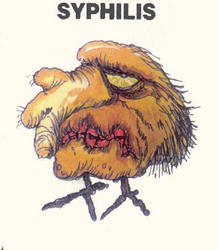
1st Stage: May get painless sore at infection site and swollen lymph nodes (“glands”)
2nd Stage: Skin rash, often on palms of hands, soles of feet, flu-like symptoms
3rd Stage: Heart, nervous system, and other internal organs may be affected
Without treatment, the symptoms may go away, but the disease remains and can cause major health problems like heart disease, blindness, brain damage and even death.
Treatment: Antiobiotics, usually penicillin
Trichomoniasis
Associated with greenish-yellow, frothy vaginal discharge; a patchy rash in the vagina; irritation and soreness in the genitals and thighs; painful urination or intercourse; often, some women have symptoms. Frequently accompanied by bacterial vaginosis.
If untreated may contribute Pelvic Inflammatory Disease (PID)
Treatment: Antibiotics